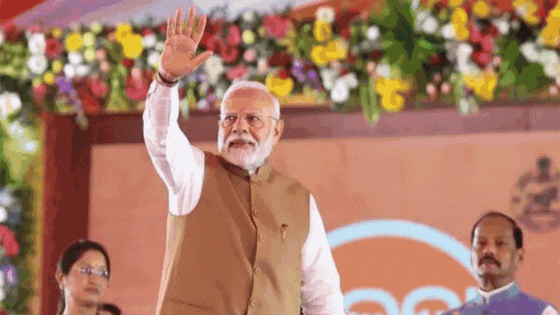Norway’s heavyweight producer Thomas Robsahm, credited for more than 50 films, including Joachim Trier’s double Oscar-nominated “The Worst Person in the World,” is gearing up for his busiest film slate ever.
After the delivery of Lilja Ingolfsdotttir’s Karlovy Vary’s multiple-winner “Loveable” and Yenni Lee’s “Explosions in My Heart,” which both screened at the New Nordic Films market in Haugesund, Robsahm is gearing up for four film shoots.
First up is “Dancing Queen in Hollywood,” Aurora Gossé’s sequel to her 2023 family hit “Dancing Queen,” which snagged multiple awards in 2023, including best children’s film in Zurich, Seattle, and distribution deals in more than 30 territories. Produced for his outfit Amarcord, the feelgood children’s film is currently in post-production, with a release set for 2025. LevelK handles sales.
The producer who joined Nordisk Film Production Norway in 2022 has three titles fully financed, lined up for the Scandinavian studio. Filming since July 29 is “My First Love” (“Jeg heter Karla”) by debut helmer Mari Storstein about wheel-chair-using Karla (19) who gets placed in a home for people with disabilities where she finds love.
Kicking off in September is “The Murder of Benjamin,” about the first racially motivated murder in Norway, seen through the perspective of two young boys and a mother. Ingvild Søderlind, credited for Netflix’s “Battle: Freestyle” (2020) and “Royalteen Princess Margrethe” (2021), is directing.
Then, in November-December, the acclaimed Maria Sødahl, with whom Robsahm collaborated on the Oscar-shortlisted “Hope,” will be back behind the camera with “Isle” (“Ø”). Robsahm and Sigurd Mikal Karoliussen will produce for Nordisk Film Denmark, in co-production with Norway’s Eye Eye Pictures.
‘Filmskapere’ talent hotbed
As Robsahm pointed out, the six aforementioned pics have two common denominators:
All have female directors, writers and lead actors, and all were developed as part of his separate talent development initiative Filmskapere (Filmmakers in English), with grants among others from Talent Norge (backed by Norway’s Ministry of Culture and Equality) and the private Tom Wilhelmsen Foundation from the Norwegian shipping magnate of the same name.
Filmskapere is, in fact, one of Norway’s best-kept secrets as the place where more than 30 of today’s and tomorrow’s brightest Norwegian filmmakers have -or are still- gathered.
Set up in 2018 by Robsahm, with public funding from Talent Norge and matching private coin, the program is a unique long-term talent development initiative where handpicked Norwegian writing, directing and producing talents can freely explore their ideas and develop them, with inspirational input from seasoned players.
The names and projects developed at the program that have ended up at A-festivals and world screens speak for themselves. Sødahl with her 2020 Berlinale Europa Cinema winner “Hope,” Eskil Vogt with the 2021 Cannes Un Certain Regard chiller “The Innocents,” Joachim Trier with the 2022 double Oscar-nominated “The Worst Person in the World,” Kristoffer Borgli with the 2022 Cannes Un Certain Regard “Sick of Myself,” Aurora Gossé with “Dancing Queen” which bowed at the 2023 Berlinale Generation Kplus, Halfdan Ullmann Tøndel, with his 2024 Cannes Caméra d’Or winner “Armand” and of course, Ingolfsdotttir, recent five-time winner in Karlovy Vary with “Loveable.”
Since 2018, the scheme has received NOK 12 million ($1.12 million) from Talent Norge, on top of NOK 12.5 million ($1.17 million) in private matching funds. Under its initial 2018-2021 phase, private coin came from Oslo Pictures and SF Studios, which had a first look at the Filmskapere projects. Since 2022, the Tom Wilhelmsen Foundation has been the sole private partner.
Under the current setup, filmmakers are therefore free to tie up with producers and distributors of their choice, although several Filmskapere projects are being produced by either Robsahm or Eye Eye Pictures (“Sick of Myself,” “Armand,” “My Wonderful Stranger”).
Silje Riise Næss, head of Talent Norge who co-runs 56 public-supported talent programs in the cultural field said: “We consider Filmskapere to be one of our key programs, regardless of genre, as their tremendous results speak for themselves.”
So what’s the secret behind Filmskapere’s success?
Going back to the program’s inception, The versatile Robsahm, whose artistic endeavors have ranged from punk music songwriting and acting to filmmaking and producing, said his initial goal was two-fold: to fill a void in the market in terms of development money available to talent -both newcomers and established, and to lift his film nation to a high-class international level by trusting talents on the long term, letting them freely experiment with their creativity, to ultimately create the best film-or script- possible.
“Basically, Filmskapere is another way to develop projects and talents without systematically going to the Norwegian Film Institute (NFI),” said the producer and fervent defender of a more flexible public funding support system or slate funding (like at Filmskapere), which gives space for talents to create over time with a financial safety net.
“The problem with film financing in Norway and in Europe is that it’s too application-driven instead of talent-driven. I actually wonder when the European Film Awards will launch its award for best application,” he quipped, adding: “At Filmskapere, the selection criteria is a proof of talent, a short film, feature or documentary, or a new experiment with genre or formats. An application can actually fool people, but a proof of talent can’t,” he insisted. “We have to trust the talent.”
What distinguishes Filmskapere from other traditional schemes is that support takes different shapes, with some talents going directly to writing a script, developing a short after film school, or a low-budget feature, or spending time working with cinematographers and actors. Some develop other projects outside of Filmskapere and come back. Filmmakers are also invited to stay within the scheme for as long as they feel necessary. “Invild [Søderlind], for instance, who was with us since the beginning, did the film ‘All Foreigners Keep their Curtain Closed’ elsewhere, then two Netflix movies, and is still with us with other projects,” said Robsahm.
Speaking of her own experience, “My Wonderful Stranger” helmer Pyykkö said: “I have several projects in development at Filmskapere. The program is flexible and supports the unique needs of each participant and their process while also providing networking, masterclasses and input. I think the success of Filmskapere lies in the fact that it allows the projects to advance on their own terms. This outlook has certainly helped me develop my projects faster.”
Riise Næss who believes “the efforts and financial support” from Talent Norge has “played a contributing factor to Norwegian talents’ high visibility on the global market, said: “the genius of Filmskapere lies in having a keen eye for the most interesting and promising talents, and then holding on to these, not letting them go until the filmmakers and their film projects have reached their full potential. “
The former film commissioner at the Norwegian Film Institute added: “If you look at the recent, impressive successes of the debut features of filmmakers Lilja Ingolfsdottir and Halfdan Ullmann Tøndel, their projects have taken years of career building and artistic development to reach this level of excellence and maturity. In these and other cases, Talent Norge and Filmskapere’s philosophy have potentially played a crucial role, increasing the chances of an international breakthrough.”
Going forward, Robsahm said he hopes Filmskapere will “lead to more development of talents that are freer, and more continuity in the delivery of high-quality Norwegian films. I also hope that our program will inspire others to trust the professionals -producers, distributors- who bring the projects to the audience instead of trusting the system too much.”
Source Agencies



